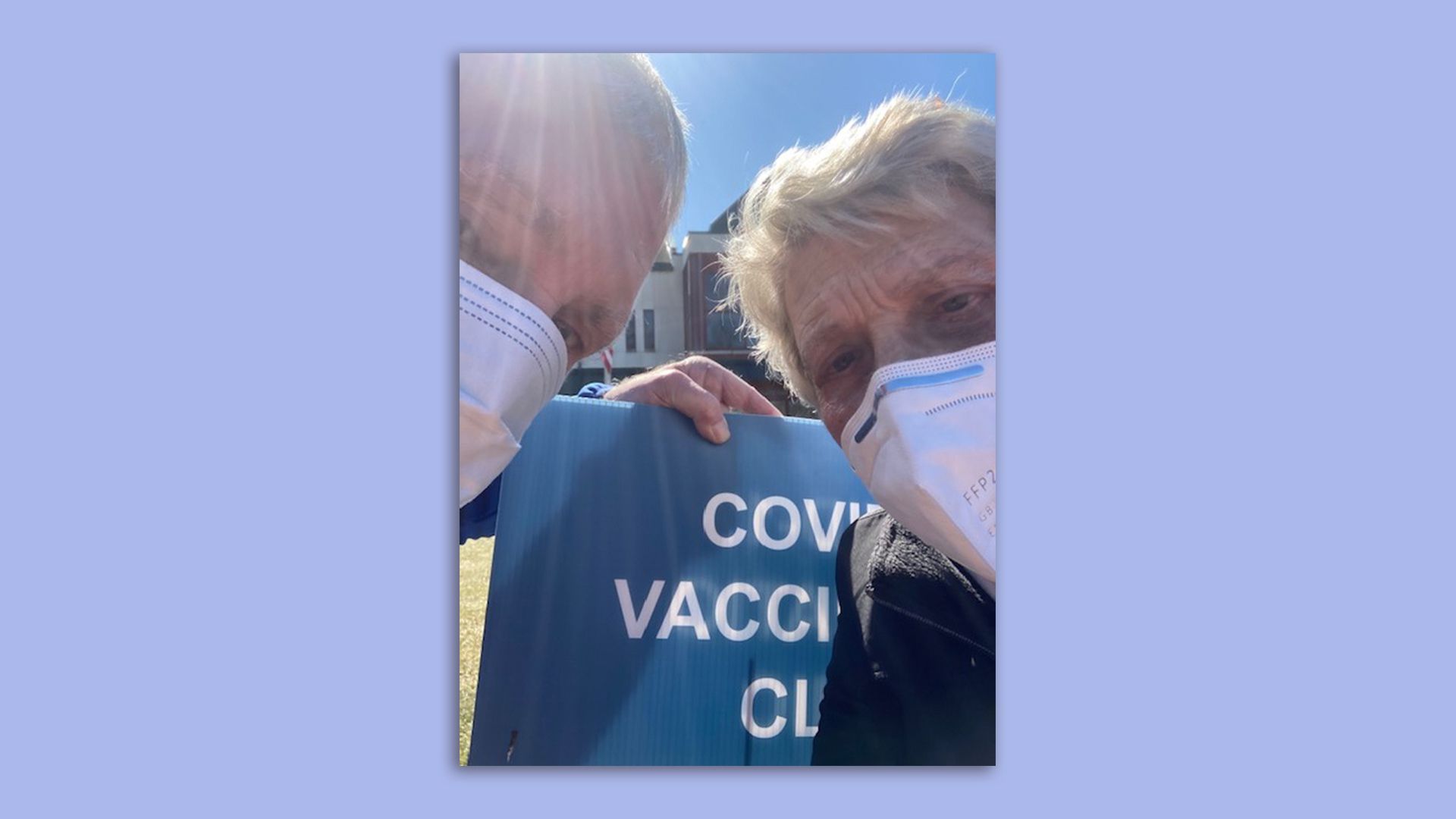Mar 6, 2021 - Technology
COVID vaccine selfies provide needed dose of hope
Add Axios as your preferred source to
see more of our stories on Google.

Bryan Walsh's parents after getting their first COVID-19 vaccine dose. Photo: Bryan Walsh's mother
Add Axios as your preferred source to
see more of our stories on Google.

Bryan Walsh's parents after getting their first COVID-19 vaccine dose. Photo: Bryan Walsh's mother